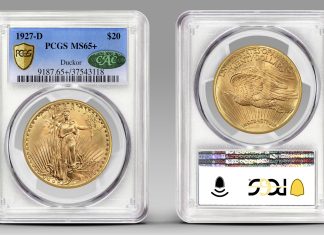 Precious metals started the midweek trading session under continued but mild selling pressure despite a softer US dollar and a third Moody’s downgrade of Spain late yesterday.
Precious metals started the midweek trading session under continued but mild selling pressure despite a softer US dollar and a third Moody’s downgrade of Spain late yesterday.
France, on the other hand, pledged to defend its AAA rating after Moody’s warned it might yank one of the letters in question or at least place the country on ‘negative’ watch. That said, the French government did allow for the fact that its 2012 growth projections had been a tad… "too high" and that its borrowing costs have escalated of late.
France’s Socialist Party candidate for the 2012 election, Francois Hollande, laid out pivotal issues for the nation’s electorate when he recently correctly identified the reduction of the budget deficit as priority number one. Mr. Hollande aims for France to have a balanced budget by 2017 as opposed to Mr. Sarkozy’s vision of a deficit that might stand at 3% of GDP by 2013. For the Socialist (!) plan to call for a dramatic cap on government spending might seem like some kind of "Twilight Zone" hallucination for some, but, hey, the times they are a’changin’… as they say. Some tough choices are in the making for France’s denizens. Join the global club, Nos Amis. Hold the frites and the mayo.
The uncertainties surrounding the details of how the European debt crisis might be resolved did not dissipate in the wake of the putative agreement between France and Germany to expand the EFSF to 2 trillion euros in size. In fact a German Finance Ministry representative said this morning that there has been no specific decision made on the scope of the rescue fund as yet. At any rate, the common currency received a modicum of a lift this morning and climbed back to the $1.38 mark as speculators deemed that an ESFS ‘adjustment’ is only a matter of time.
Ask the average fund manager out there what the odds of a Greek default might be, and you will tally 70% of them counting on a 100% chance that such an event before the first quarter of 2012 draws to a close. While the collective wisdom of investors is a metric that has often been proven wrong, those odds are quite impressive at this time. Still, if there is any good news in all of this, it would be the fact that, according to market participants, the probability of an ‘orderly’ default by Greece has already been priced into various markets.
European banks are promising asset sales, cost cuts, and lending reductions to the tune of $1 trillion in an effort to reassure investors that they can navigate through the financial tough spot the Old World finds itself in at the moment. Possible recapitalization of certain banks has been on the EU’s talking table as a possibility. However, the proposed self-shrinkage plans are meeting with skepticism by financial analysts. Some of them doubt that the 200 or 300 billion euros’ worth of additional needed capital can be raised by asset sales by the banks. A sale, by definition, has to also have a buyer in order to materialize.
Otherwise, it remains an offer. Would-be buyers of said assets are, at the moment, less than visible.
The CFTC voted 3-2 to approve new limits on commodity speculation. In essence, the new rules of the speculative game involve a limit of no more than 25% of deliverable supply in a commodity for the nearest delivery month. Other caps limit players to 10% of the first 25K contracts of open interest and to 2.5% thereafter. RBC analysts have surmised that with the advent of these rules it will now become perhaps more important to keep an eye on open interest figures than parsing the technical charts.
Spot gold drifted $4 lower on the open, and was quoted at $1,651 the ounce as against a 0.38 slip by the greenback on the trade-weighted index (to 76.78). Silver was off 12 cents at the same time, with a spot-bid quote coming in at $31.92 the ounce. Not much there to report in terms of sizeable moves in platinum and palladium; they both eased by about $3 per ounce to start off near $1,527 and $617 respectively. These all appeared like markets in need of fresh news to drive them.
Alas, the mixed news from the US economic front did not appear to do the trick for the metals, just yet. It did help European equity markets however and it narrowed the losses being shown in US stock market futures as well. The US dollar slipped lower in the wake of CPI data that showed consumer prices rising 3.9% over the past 12 months, but there was also a reported 15% spike in housing starts in the US (to a 17-month high) reported. Markets appeared to focus on the core inflation figure (at 0.1%) which recorded its smallest gain since the month of March this morning and came in under economists’ expectations.
Also running under expectations, there is another worry item; China’s trade outlook. The country’s Commerce Ministry warned today that the rest of 2011 and the first trimester of 2012 do not appear to look very promising for imports and exports. We cited some of the reasons for this in yesterday’s article. The markets did not take very well the news that China’s growth rate came in at only 9.1% yesterday.
With the world left with but this sole engine of growth on the wing, the apprehensions surrounding the growth figure are understandable. We cannot yet count on Europe to give the needed thrust to keep thing aloft. Meanwhile Japan and the US continue to sputter and show a rather uneven spin in their economic motors. In fact, it has been ascertained that the US requires a second "productivity miracle" to become manifest at this time. Otherwise, falling per-worker-output will likely result in shrinkage of income gains, more joblessness, and even larger federal deficits.
Little wonder then, that the US’ and the world’s central bankers continue to pedal as hard as they can in an effort to keep things in the air; they have met the alternative and they like it not. Boston Fed President Rosengren stated that in the wake of the European crisis there is a pressing need for regulators to clean up the global banking system once and for all. If left to fester, the problems in the niche could only lead to further debt downgrades, more crises, and the toppling of governments.
Fed Chairman Bernanke reported that his institution learned a thing or two from the crisis of 2008. Among those lessons is the fact that a central bank needs to have a dual mandate. Controlling inflation while also keeping the banking system above the waterline is that two-pronged (and less than easy) task. There are plenty of Fed critics (some would have the Chairman fired by now) who talk a blue streak but who have offered no concrete solutions to the problems. For its part, the Fed will do what it can to also talk more and not just act; Mr. Bernanke indicated that the US central bank will become even more explicit in relaying its sausage-making process to legislators and the public as we go forward.
Back to dollar-watch. Seems like about the only game in town right about now.
Until tomorrow,
Jon Nadler
Senior Metals Analyst — Kitco Metals
Jon Nadler
Senior Analyst
Kitco Metals Inc.
North America
Disclaimer: The views expressed in this article are those of the author and may not reflect those of Kitco Metals Inc. The author has made every effort to ensure accuracy of information provided; however, neither Kitco Metals Inc. nor the author can guarantee such accuracy. This article is strictly for informational purposes only. It is not a solicitation to make any exchange in precious metal products, commodities, securities or other financial instruments. Kitco Metals Inc. and the author of this article do not accept culpability for losses and/ or damages arising from the use of this publication.
www.kitco.com and www.kitco.cn
Blog: http://www.kitco.com/ind/index.html#nadler










